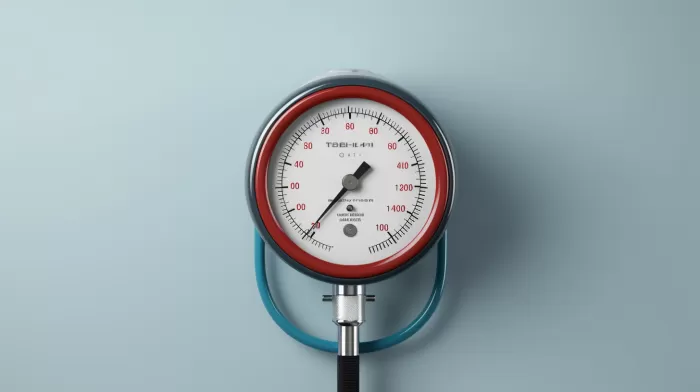It’s a silent killer – high blood pressure. And not just because it can lead to heart attacks or strokes. Hypertension can also wreak havoc on your mind. New research has found that even mildly elevated blood pressure increases your risk for cognitive decline and dementia. So, if you want to protect your brain, it’s time to get serious about managing your blood pressure.
How High Blood Pressure Affects Your Brain
When your blood pressure is consistently too high, your brain is continually exposed to increased stress. Over time, this stress damages your brain’s blood vessels, affecting their ability to deliver oxygen and vital nutrients. The end result? A steady decline in your brain’s ability to function at its peak.
Just how high is too high for optimal brain health? A comprehensive analysis of 19 studies, involving more than 750,000 people, determined that any blood pressure reading higher than 120/80 mmHg significantly increases the risk of cognitive decline. If your blood pressure is persistently in the 120/80 to 140/90 range, your risk of having a stroke increases by a staggering 60 percent. It’s important to note that blood pressure medication is not typically prescribed to individuals in this range, known as the “prehypertension” zone.
Tips for Lowering Blood Pressure Naturally
If you find yourself in the prehypertension range, fear not, there are ways to lower your blood pressure naturally. Additionally, it’s a good idea for anyone trying to avoid hypertension to adopt these strategies for better overall health.
1. Modify Your Diet
Incorporate more fruits, vegetables, and whole grains into your daily meals. Nutrient-rich foods like these can help you maintain a healthy weight, which is crucial for maintaining healthy blood pressure levels. Also, cutting back on sodium is a powerful way to help lower blood pressure. The American Heart Association advises keeping your sodium intake below 2,300 milligrams per day, or even better, reducing it to 1,500 milligrams per day.
2. Regular Exercise
Physical activity is another proven way to help lower blood pressure. Aim for at least 150 minutes of moderate-intensity aerobic activity or 75 minutes of vigorous aerobic activity every week, as recommended by the Centers for Disease Control and Prevention. Consistency is key, as regular exercise helps maintain a healthy body weight and lower blood pressure over the long term.
3. Limit Alcohol and Quit Smoking
Excess alcohol can raise your blood pressure and increase your risk of stroke. Drink in moderation, limiting yourself to no more than two drinks per day for men and one drink per day for women. If you smoke, quitting is crucial to improve your overall health and protect your brain. Cigarette smoking raises blood pressure and accelerates the development of atherosclerosis, a condition that increases the risk of dementia.
4. Manage Stress
Chronic stress can send your blood pressure through the roof, literally. Various relaxation techniques such as deep breathing, meditation, or progressive muscle relaxation may help you lower your blood pressure and better manage stress. Don’t hesitate to seek support from a therapist or counselor if stress is causing you significant anxiety or interfering with your daily life.
5. Monitor Your Blood Pressure
Last but not least, keep an eye on your blood pressure levels. Regularly monitoring your blood pressure will help you catch any potentially harmful increases early on, giving you the opportunity to take action and protect your brain. Discuss any concerning readings with your healthcare provider who can help you determine appropriate interventions or medications as needed.
The Power of Beet Juice
Looking for an extra boost in your battle against high blood pressure? Research in England has discovered that beet juice can help control your blood pressure. Beets are packed with nitrates, which are converted into nitric oxide in the body. Nitric oxide has the unique ability to relax and expand blood vessels, allowing blood to flow more efficiently and helping to lower blood pressure.
Conclusion
Don’t let high blood pressure control your life and damage your brain. With regular monitoring, a healthy lifestyle, and proactive measures like beet juice, you can effectively manage your blood pressure and keep your mind sharp for years to come.



